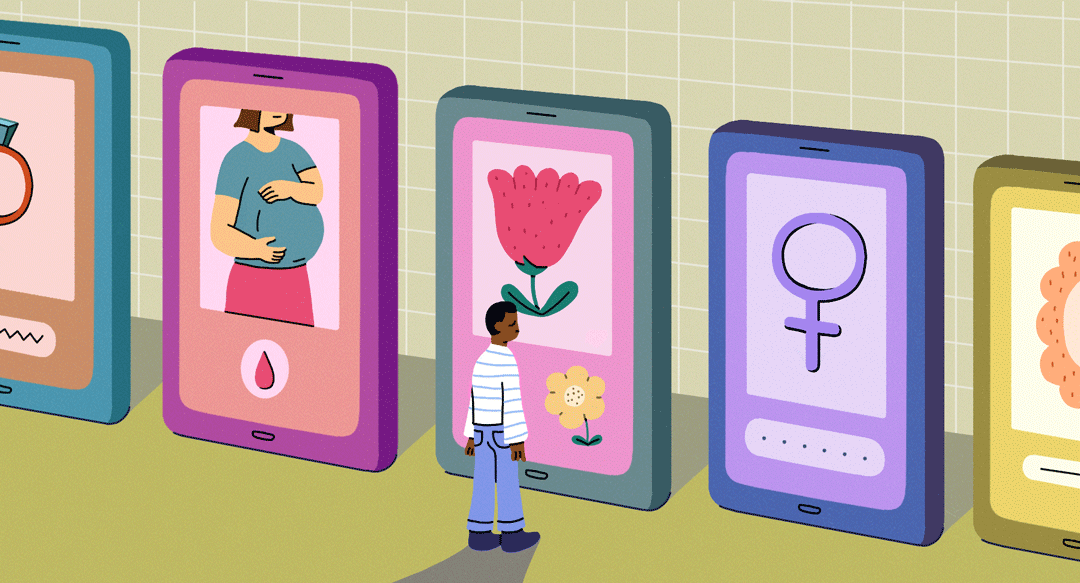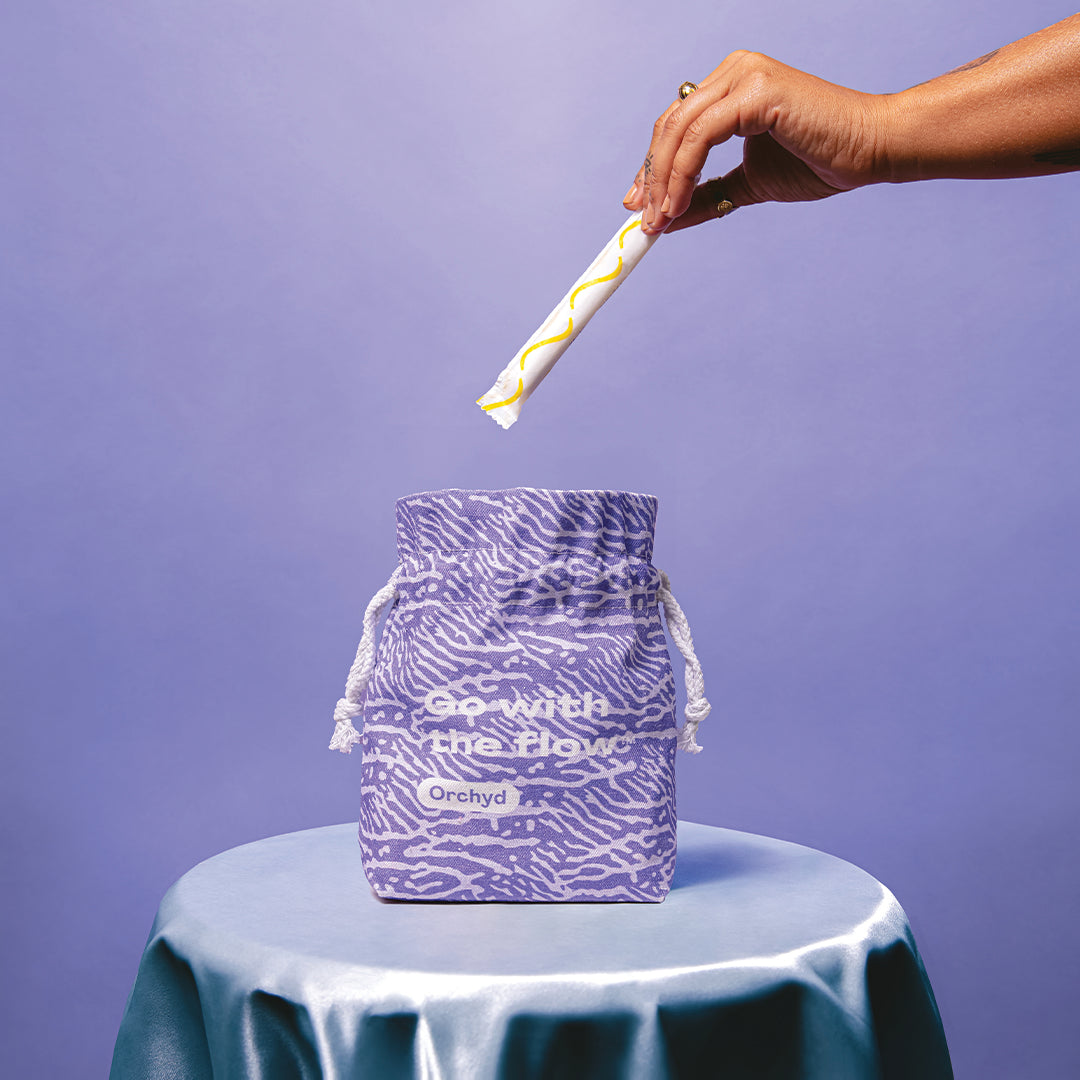
Building a Better Period Tracker App
Share
 The femtech market has been growing exponentially over the past decade— with most offerings relating to period-tracking and reproductive health. Period-tracking apps like Clue and Glow have dominated the femtech space over the past few years. These apps allow people to track their menstrual cycle and sexual activity, among other things.
The femtech market has been growing exponentially over the past decade— with most offerings relating to period-tracking and reproductive health. Period-tracking apps like Clue and Glow have dominated the femtech space over the past few years. These apps allow people to track their menstrual cycle and sexual activity, among other things.
But what sounds like a valuable health tool for some is polarizing for others. These apps tend to have flowery and overwhelmingly pink designs, with cutesy animations taking priority over serious medical data. They make broad assumptions about the gender identity of the user, why they might be using the app (usually assuming it is about pregnancy), and they tend to depict only male-female relationships.
Why is there such a disconnect? It may have something to do with the fact that although these apps concern women’s health, Silicon Valley developers are still largely male. According to Vox, “the femtech market is estimated to be worth $50 billion by 2025, but globally, only 10 percent of investor money goes to women-led startups.” Even Glow, one of the largest period-tracking apps with over 15 million users, was founded by five men in 2013. Glow raised $23 million in funding in its first year— establishing that menstruation was a business and marketing opportunity more than anything else.
In a 2016 study, Columbia University Medical Center determined that “most free smartphone menstrual cycle tracking apps for patient use are inaccurate. Few cite medical literature or health professional involvement.” Although there are a plethora of apps available, few are actually reliable and trustworthy.
Even though the menstrual cycle is a hugely important aspect of women’s health, there are few, if any, reliable resources to track periods. Most of the apps take a one-size-fits-all approach. They assume that users are trying to get pregnant, and many are not customizable in any way. They also fail to recognize irregular cycles and have no option for tracking cycles that stray from the most common patterns.
The apps fail to recognize transgender or nonbinary users as well, and they assume that every user is in a relationship with one partner. Some even have options to give your partner access to your private medical data for their knowledge. As Vox states, “they are yet another example of technology telling queer, unpartnered, infertile, and/or women uninterested in procreating that they aren’t even women.”
The University of Washington conducted a study in 2017 to determine how period-tracking apps fail users in fundamental ways. The team found in their surveys that people utilize the app “for a variety of reasons: to understand their body and reactions to different phases of their cycles; to prepare for their periods; to achieve or avoid pregnancy; or to inform conversations with healthcare providers.”
“Many apps don’t allow users to correct them when the predictions are wrong or to input data or explanations about why a particularly stressful month or change in birth control might have thrown off their cycles,” the study concludes.
The glaring problem with most popular period-tracking apps is that they don’t look at the menstrual cycle as medically important. Developers prioritize marketing, meaning that they aim to get users to view more ads instead of actually supplying helpful information.
Researchers at the University of Washington came up with five suggestions to improve period-tracking apps based on their study results.
“Allow users to provide customized feedback to boost accuracy; ditch the pink flowers and other heteronormative stereotypes; be discreet in the design; enable users to export their data to other health and fitness tools; and recognize that an individual user’s menstrual tracking needs change over time,” they say.
These key points do not seem hard to achieve, and some developers have already taken note. When done right, period-tracking apps could be an extremely useful tool in the women’s health space—once developers realize that menstruation is a unique experience for each person and cannot be boiled down to an algorithm.
At Orchyd we strive to meet this unique experience, for women and everyone who has a period. Our goal is to remove stereotypes, respect identity and sexuality, and push the boundaries on what is considered “the norm.” That is why we designed the Orchyd app the way we did. We hope to be a driving force for change in period care and hopefully encourage more inclusivity.

